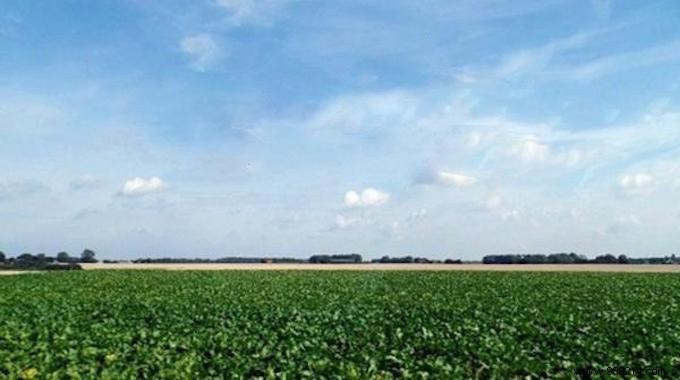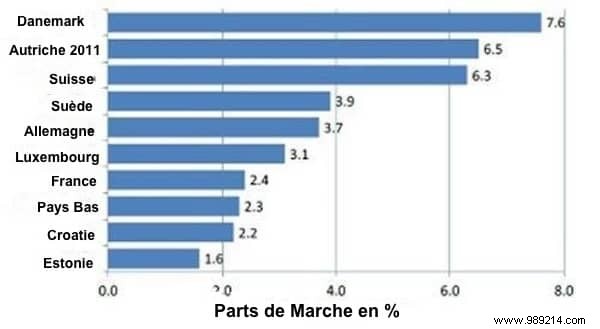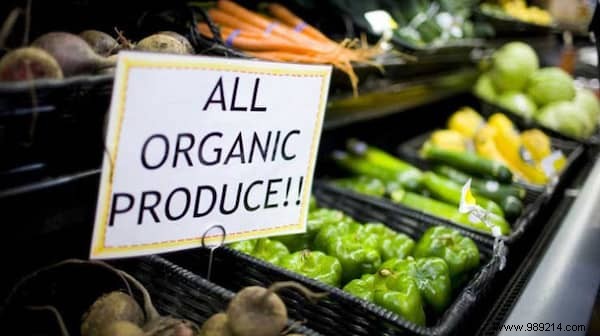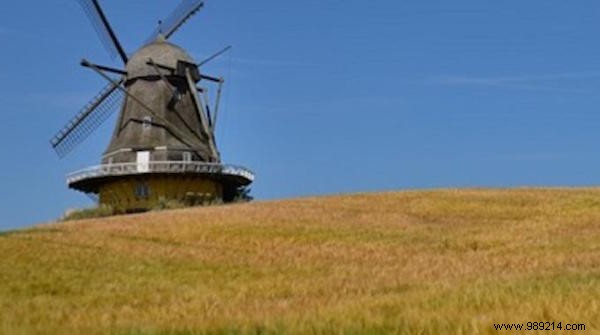
Danes are some of the happiest people on earth.
But that's not all!
Denmark is also the most advanced European country in the field of organic farming.
In fact, they are the biggest consumers of organic products in the world.
More than 8% of Denmark's entire agricultural area is grown organically.
This is the highest percentage in Europe. Not bad right?

But the Danes are not going to stop there. The Danish government has implemented a policy to significantly increase the production of organic products.
This country is taking on a new challenge:to be the 1st European country to offer 100% organic farming!
The Ministry of Food, Agriculture and Fisheries has released its plan.
The official objective is to double the area cultivated organically by 2020.
To achieve these objectives, the government has committed more than 54 million euros.

And one of the first steps in this plan is to serve 60% organic food in public establishments.
Namely in schools, daycares, ministries and hospitals...
"In order to achieve our goals, which are among the most ambitious in the Western world, the public sector must lead by example", explains the Minister of Agriculture, Dans Jorgensen.
"Together with the organization Organic Denmark, a grouping of organic companies, farmers and consumers, we will strengthen cooperation between municipalities, regions and ministries with a whole series of new initiatives.
We are committed, among other things, to having more organic food on the menu of canteens, hospitals and daycare establishments."

According to the Action Plan, the area of land cultivated organically will have to double from 2007 to 2020. This is one of the key measures at the top of the program.
It is by setting an example that the Danish government has chosen to wage its battle.
All state-owned land will be cultivated using organic or biodynamic methods.
In addition, allowances will be paid to all those who engage in this mode of production or who facilitate its financing, or even develop technologies or ideas to favor this type of production.
It is a concrete and incentive way to support and encourage this movement. Because it must be recognized that this mode of production is more expensive than conventional agriculture.

In concrete terms, to achieve these objectives, it will be necessary, among other things:
- 3.3 million euros to promote sales in the domestic market over the next few years.
- Simplify the country's laws relating to organic production.
- Subsidize farmers who switch to organic and require public land to be grown organically.
- Dedicate nearly 8 million euros to help public establishments use more organic products.
- Serve more organic meals in canteens, such as those of the Department of Defense.
- The Ministry of Education will also include more lessons on organic farming and its benefits in the school curriculum.
Today, 97% of Danish consumers recognize the organic farming logo. That's pretty good for a logo that just celebrated its 25th anniversary!
Of all the food sold, 8% is labeled organic.
This is already a world record. But for Denmark, the road is still long.
This country has set itself an incredible and ambitious challenge. And beware, there is competition!
Bhutan has also committed to having 100% organic agriculture by 2020.
Admittedly, the population of Bhutan is smaller than that of Denmark. However...
Congratulations to all the countries that are embarking on this type of challenge! And France, when is it? :-)